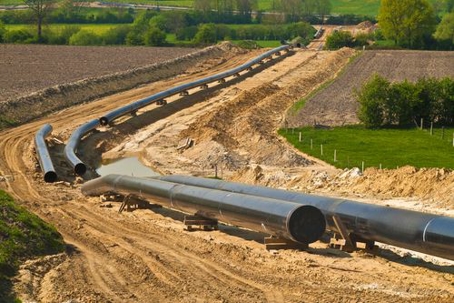As several entities continue to push for the Keystone oil pipeline expansion, more and more people are questioning the origins of the rare permit that enabled the pipeline’s establishment in the first place.
Since the pipeline began operations in 2010, it has carried oil down from Canada into the U.S. through North and South Dakota under the management of TC Energy Corp. To date, there have already been 4 major spills across the length of the Keystone, despite the fact that the company’s proposed risk assessment estimated that the pipe would only leak once every 7-11 years.
Because there have already been four times the number of leaks the company expected, people aren’t just concerned about the potential Keystone XL Expansion, they’re beginning to wonder how and why the construction of the Keystone Pipeline was approved in the first place. The answer? A special permit granted by U.S. regulators.
The special permit enabled the Pipeline’s construction, under the condition that the operator, TC Energy Corp, formerly known as TransCanada, would watch the pipeline closely. Unfortunately, the pipeline’s numerous leaks have raised several environmental and safety concerns, as many environmentally-conscious organizations projected it would before the pipeline was approved.
Why a Special Permit?
The pipeline moves roughly 590,000 barrels of oil each day and does so at a pressure that is “higher than standard.” In short, the U.S. Pipeline and Hazardous Materials Safety Administration (PHMSA) had to agree to make an exception to more than 50 safety conditions in order to create a special permit for the Keystone Pipeline.
When interviewed by The New York Times, our very own Attorney Brian Jorde explained:
“These permits should not be granted, but certainly not to a company with repeated safety failures and frequent spills. Granting of these permits [is] supposed to correspond with more vigorous inspections and more frequent inspections by the applicant, but in reality, it is more self-policing which typically falls below the intent of the special permit."
Interested in learning more about the recent Keystone Pipeline expansion? Read our blogs:
- Will the Recent Oil Spill Put an End To the Keystone XL Pipeline Expansion?
- Domina Law Calls on Nebraska Supreme Court to Reconsider Keystone XL Pipeline Ruling
- Nebraska Supreme Court Hears Oral Arguments in Keystone XL Case
- Landowners File Suite Stating Routing of Keystone Pipeline Needs to Start Over
- Landowners Discuss Keystone XL Pipeline – Marketplace Report

